Three Waters, power prices, bad behaviour, simple Aussies
Coalition’s water reforms will allow councils to borrow more to fix infrastructure.
WATCH: NBR political editor Brent Edwards speaks with Grant Walker.
Coalition’s water reforms will allow councils to borrow more to fix infrastructure.
WATCH: NBR political editor Brent Edwards speaks with Grant Walker.
The coalition Government has finally released the details of its plan to replace the former Labour Government’s Three Waters reform.
Under the coalition’s plan, local councils will be encouraged to form council-controlled organisations to run their water services. If they do – and most, if not all, surely will – the Local Government Funding Agency has agreed to substantially increase how much it would be prepared to lend them.
At a meeting on Sunday night, its board signed off on an agreement that it would lend up to 500% of a CCO’s total revenues, getting around the debt level restrictions that have prevented councils from borrowing more to fund investment in water infrastructure.
It will certainly help provide the funding for infrastructure investment, but will it be enough?
NBR presenter Grant Walker is gloomy about the plan, saying it is simply going to lead to higher rates or water charges.
That is also the view of the Labour Party’s local government spokesperson Kieran McAnulty, who says the Government is shifting all responsibility and blame to local councils, who will inevitably charge ratepayers more.
But the Government argues that, by enabling CCOs to borrow more than they otherwise would, it allows the cost of new water infrastructure to be spread across the lifetime of the assets, meaning future ratepayers will also share the costs.
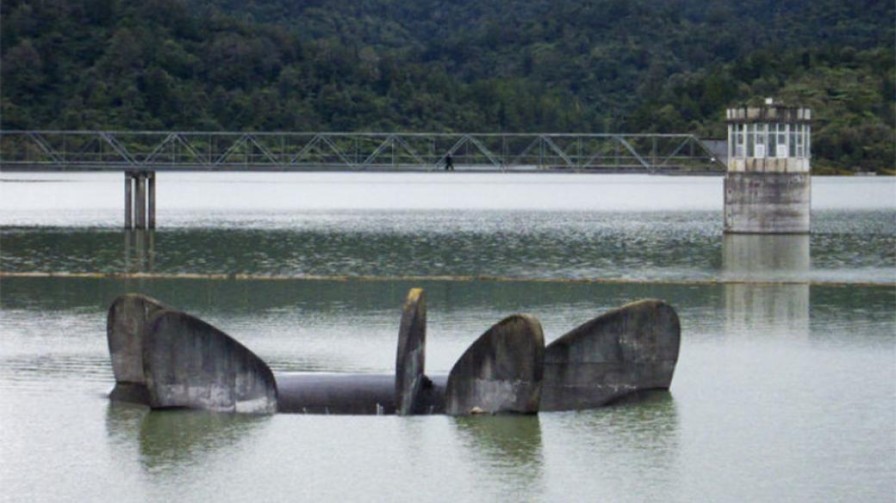
Council-controlled organisations will be able to borrow more and spread payments across the life of an asset.
Local Government Minister Simeon Brown says Labour never bothered to engage with the Local Government Funding Agency and instead had been obsessed with balance sheet separation. But this plan opened the way for CCOs to borrow more, while still under the ownership of councils.
“Our expectation is that councils will now use this certainty, and the additional borrowing capacity, to reduce pressure on ratepayers, while being able to invest in the critical water infrastructure New Zealand needs,” Brown says.
There is also a bit of stick in the plan, not that Brown wanted to talk about that this week. Under the legislation, the Government will have backstop powers to force councils to set up CCOs if they do not do it voluntarily.
Meanwhile, Infrastructure New Zealand is one of the organisations that welcomes the announcement.
“Providing significantly more debt headroom and the ability to pay that back over the lifetime of new assets will ensure that community-owned water infrastructure will get the investment it needs,” its policy director Michelle McCormick says.
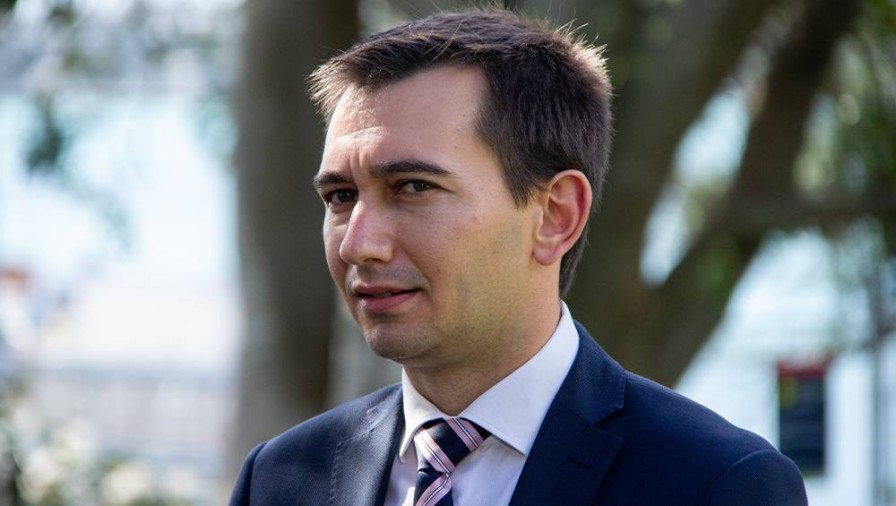
Local Government Minister Simeon Brown.
The country is also having water problems with its hydro lakes and, as a result, spot prices on the electricity market have gone through the roof. Large businesses are already suffering, with some suggesting they might have to close.
Associate Energy Minister Shane Jones has threatened regulation to bring the companies that generate and sell electricity – the gentailers – to heel. Act Party MP Simon Court has also jumped on the band wagon, writing to all party leaders in Parliament calling for a multi-party accord on natural gas.
“We’re now in the absurd situation where power companies are looking at importing natural gas from overseas to make up for declining local production. Even the Greens ought to be able to admit that is an own goal,” Court said in his letter.
During the general debate in Parliament on Wednesday, Brown – who is also Energy Minister – blamed the previous Government, saying it had wrecked confidence in energy with its oil and gas ban and had adopted a “reckless” 100% renewable electricity target by 2030.
“The result is that New Zealanders are now paying the highest electricity prices in the world. Just this morning, the spot price in Northland reached over $1700 per megawatt hour,” Brown said.
He said he had met with the four largest gentailers that morning and the message was clear: New Zealand needed more natural gas.
But electricity prices have spiked in the past – even when there was plenty of natural gas – when hydro lake levels fell.
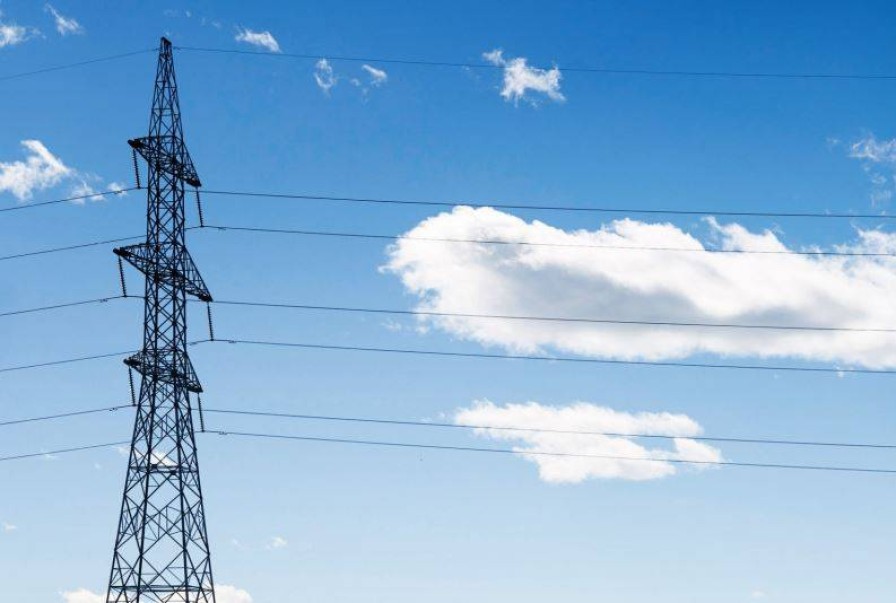
Transpower is also worried by the spike in electricity prices.
Victoria University economist Geoff Bertram blames the design of the electricity market for much of the country’s woes and says the gentailers who Brown met with act as a cartel.
“They’re a bunch of companies with enormous market power to exploit situations [such] as the present one, and that market power is exercised at the pursuit of profits, which is what these companies are set up to do,” Bertram told RNZ’s Morning Report programme.
He blames successive governments for failing to fix the system.
In a presentation in 2022, Bertram said productivity in the electricity sector was down 30% since the market structure was put in place, gross profits were up 80%, while prices for residential consumers had doubled in real terms.
The Electricity Authority is also suspicious about the current crisis, saying it is not comfortable with the power companies’ explanations for why prices have jumped so high. And Transpower has started consulting over allowing hydro generators earlier access to emergency water storage to help alleviate the situation.
From the Government’s perspective, it will worry that higher electricity prices will eventually fuel broader prices rises, just as inflation appears to be coming under control.
What apparently is not yet under control is the behaviour of MPs, with the furore around what Children’s Minister Karen Chhour refers to as bullying refusing to go away.
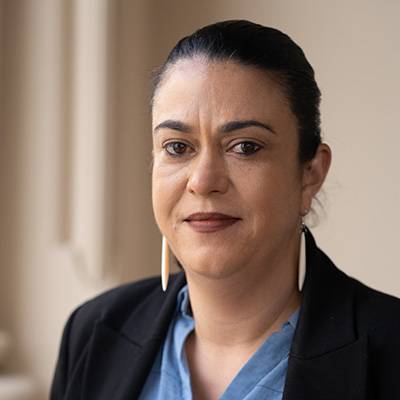
Children’s Minister Karen Chhour.
One person’s bullying might be another’s robust debate, but Chhour is particularly upset by some personal comments directed at her during debates over the Government’s plan to remove Section 7AA from the Oranga Tamariki Act, which refers to Treaty of Waitangi obligations. Te Pāti Māori MPs have been particularly direct.
It has prompted Act Party leader David Seymour to criticise Parliament’s Speaker Gerry Brownlee for the way he has handled the matter.
On Tuesday, Brownlee addressed the matter directly, telling MPs a Commissioner of Standards, Lyn Provost, had been appointed early last year in response to recommendations from the Francis report on bullying. So far, Provost had received no complaints.
He said that, since becoming Speaker, he had taken the view MPs should be trusted to behave in an appropriate way.
“That was perhaps too hopeful a position. While free speech is important, any comment that touches on personal reflection, either collectively or individually, is not acceptable,” Brownlee said.
He said presiding officers in Parliament would now be much more vigilant. If so, they will have a busy time.
Walker asks whether the behaviour has ever been as bad as this.
It has. Parliament is a robust place and there are people now complaining about the treatment dished out to Chhour, who have been guilty of similarly bad behaviour in the past. It is – as it often is in politics – a case of the kettle calling the pot black.
No-one, though, should be surprised about the level of passion and anger that has been ignited by government policies aimed at – as many see it – relegating the place of Māori.
One little instance of that was the decision by Arts, Culture, and Heritage Minister Paul Goldsmith, who is also Treaty of Waitangi Negotiations Minister, to remove some te reo Māori from an official invitation to Matariki to his Australian counterpart Tony Burke.
Prime Minister Christopher Luxon explained the matter by saying: “In my dealings with Australians, it always pays to be incredibly simple and clear and use English.”
Walker believes it is another gaffe by the Prime Minister, following from his comment about C-lister business delegations.
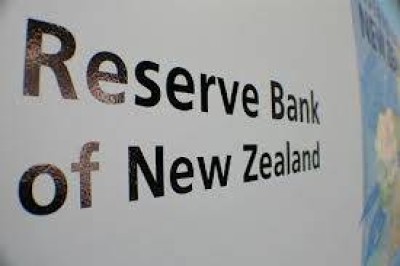 But Australian Prime Minister Anthony Albanese appeared to take it in good heart as he was reported saying: “Sometimes we need interpreters with the Kiwi accent.”
But Australian Prime Minister Anthony Albanese appeared to take it in good heart as he was reported saying: “Sometimes we need interpreters with the Kiwi accent.”
It is unlikely to derail the trans-Tasman relationship.
Next week, all eyes will be on the Reserve Bank as it releases its latest Monetary Policy Statement. Some economists believe the bank will start cutting the official cash rate from its current level of 5.5%, while others think it will hold.
Already, retail banks have begun cutting their rates in anticipation, but they might have to wait a bit longer.
In the case of the official cash rate, it is not a question of if it will drop, but when.
Brent Edwards is NBR’s political editor.
Sign up to get the latest stories and insights delivered to your inbox – free, every day.